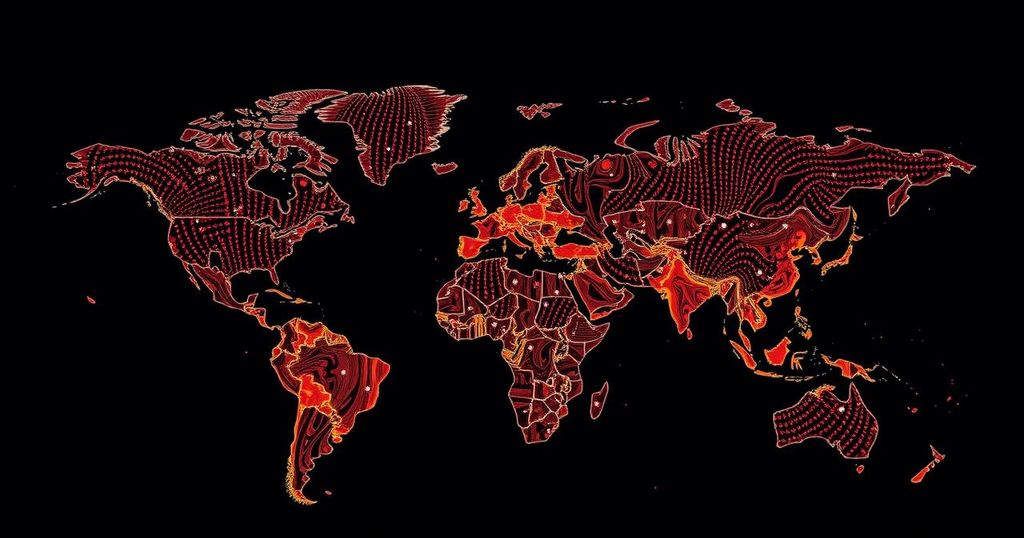Examining the Disconnect: Billions in Oil Payments and the Plight of Equatorial Guinea’s Residents.
Tutu Alicante highlighted the tragic consequences of inadequate healthcare in Equatorial Guinea amidst significant oil revenues, as U.S. companies like ExxonMobil and Chevron revealed billions paid to governments. New SEC disclosures aim to improve transparency and combat corruption, signaling potential disparities in tax payments that could inform policy reform.
Tutu Alicante shared a harrowing account of his sister’s preventable death due to inadequate medical facilities in Equatorial Guinea, which stood in stark contrast to the economic growth spurred by oil discoveries by companies like Mobil in the region. Despite the arrival of billions of dollars in payments from American oil companies such as ExxonMobil and Chevron, many residents continue facing dire living conditions. Alicante, who serves as the executive director of EG Justice—a nonprofit addressing corruption in Equatorial Guinea—highlighted the disconnect between the wealth generated by the oil industry and the struggles endured by ordinary citizens in his country. Recent disclosures from the U.S. Securities and Exchange Commission (SEC) have shed light on payments made by prominent extractive companies to governments worldwide, revealing a total of tens of billions of dollars. Such disclosures are designed to illuminate potential corruption by allowing public scrutiny of the payments that companies make to different governments. For instance, ExxonMobil reported payment of $189.2 million to the Equatoguinean government, a small fraction of the $32 billion paid out to 28 countries. Similarly, Chevron disclosed $16.6 billion in payments across 17 nations. Notably, discrepancies in tax payments highlighted by Oxfam America indicate that the United States receives less in taxes compared to foreign countries, with Exxon making nearly five times as much in taxes to the United Arab Emirates as it did to the U.S. government. While both ExxonMobil and Chevron issued statements asserting the difficulty in making international payment comparisons due to varying taxation and royalty structures, advocates argue that transparency is crucial for accountability. Zorka Milin of the Financial Accountability and Corporate Transparency Coalition indicated that the oil industry’s resistance to more comprehensive disclosure reflects their discomfort with these revelations. The SEC’s new rule on disclosures stems from an amendment to the Dodd-Frank Act of 2010, following previous attempts that faced legal challenges and repeal under the Trump administration. Though the current guidelines do not mandate reporting at the contract level, they remain significant for monitoring the income received from resource extraction. Advocates emphasize the importance of these disclosures in driving informed discussions about tax policies and the overall health of national economies as the world continues to confront climate change. One of the leading concerns raised by this recent scrutiny is the potential for international extractive industries to assert control over favorable government concessions, often at the expense of state revenues. As global commitments to clean energy intensify, it is essential that countries assess the fairness of their financial agreements with multinational corporations. The recent disclosures could serve as critical benchmarks for better governance and equitable benefit-sharing from natural resources.
In August 2021, the SEC implemented rules requiring oil, gas, and mining companies to disclose payments made to foreign governments, a mandate stemming from the Dodd-Frank Wall Street Reform and Consumer Protection Act of 2010. The impetus behind this initiative is to combat corruption, enhance transparency, and ensure that revenues generated from natural resources are directed toward public welfare rather than accumulating wealth among a select few. The disclosures aim to equip citizens and civil society groups with the necessary information to hold governments accountable and drive advocacy for more equitable resource management.
The recent disclosures from major oil companies have unveiled significant payments made to governments worldwide, emphasizing the pressing issue of equitable wealth distribution from resource extraction. Although the data reveal the disparity in taxes paid by these companies in different jurisdictions, advocates stress the need for continued scrutiny and reform to ensure that developing countries do not fall victim to exploitative agreements that benefit multinational corporations over local populations. The revelations serve as a starting point for dialogue about the adequacy of fiscal arrangements, especially as the global community grapples with the urgent need for a transition towards sustainable energy practices.
Original Source: insideclimatenews.org




Post Comment